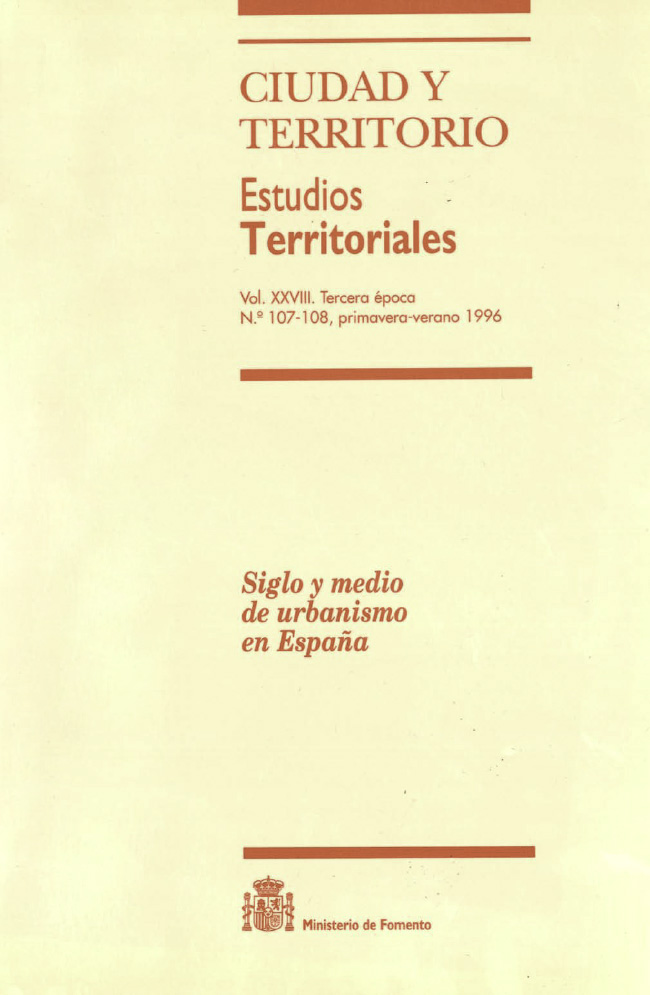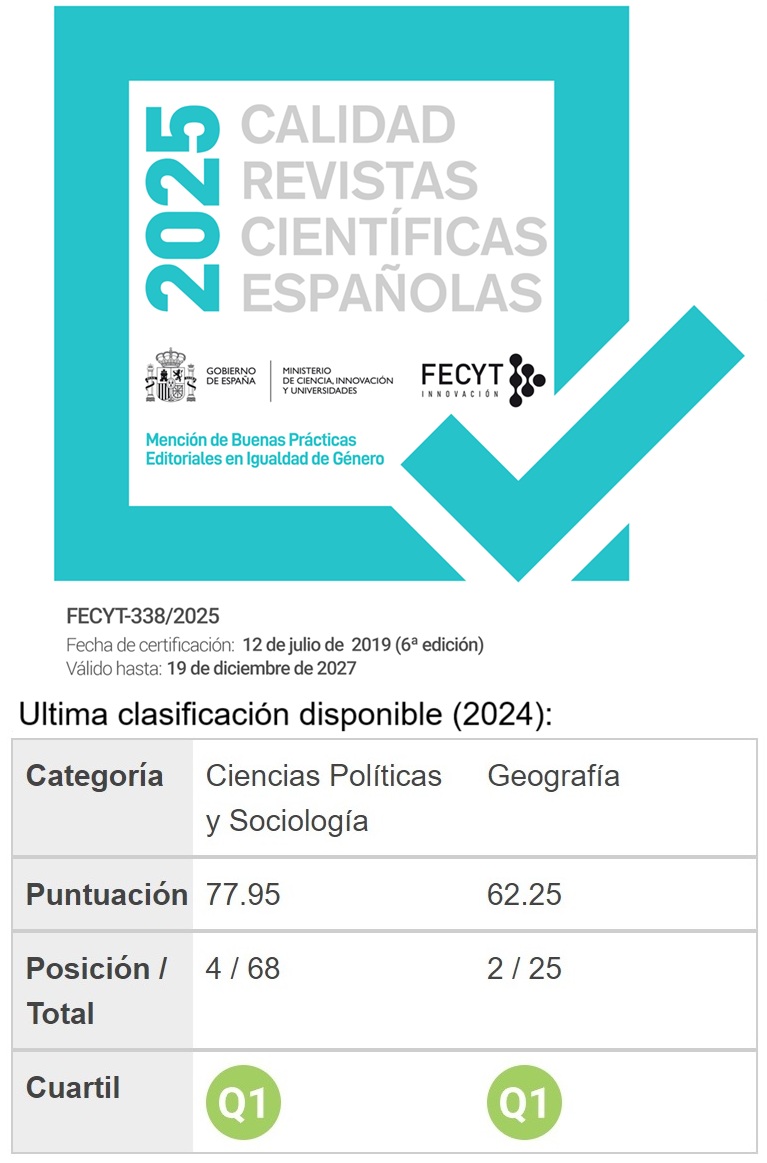Constitución y democracia: 1976-1996. La segunda reforma de la Ley del Suelo
Resumen
La organización territorial del Estado español introducida por la Constitución de 1978 supuso un cambio radical en la atribución de las competencias en materia de urbanismo, que se transfirieron en bloquea las nuevas Autoridades Regionales, incluso antes de su institucionalización formal en el texto constitucional. Estas modificaciones competenciales coincidieron con la culminación de la primera gran reforma de la Ley del Suelo de 1956, mediante la aprobación de sus más importantes Reglamentos de desarrollo. A partir de ese momento, la producción de normas jurídicas con incidencia en el urbanismo tuvo una doble fuente: el propio Estado, que retenía importantes (aunque discutidas) competencias y las Comunidades Autónomas. El trabajo da cuenta de la evolución legislativa durante el período que se inicia con la promulgación de la Constitución, centrándose en la segunda reforma de la Ley del Suelo, mediante la Ley estatal 8/90, explicando las vicisitudes de elaboración y los criterios sustantivos que inspiraron su redacción. Finalmente, se hace una referencia a la segunda «generación», de leyes autonómicas aprobadas tras la reforma estatal y a la difícil encrucijada en que se encuentra actualmente el derecho urbanístico español.
Descargas
Descargas
Publicado
Cómo citar
Número
Sección
Licencia
Derechos de autor 1996 Angel Menéndez Rexach

Esta obra está bajo una licencia internacional Creative Commons Atribución-NoComercial-SinDerivadas 4.0.
Sin perjuicio de lo dispuesto en la legislación vigente sobre Propiedad Intelectual, y conforme a la misma, el/la los/las autor/a/es/as que publiquen en CyTET cede/n a título gratuito, de modo no exclusivo y sin límite temporal al Ministerio de Transportes, Movilidad y Agenda Urbana los derechos para difundir, reproducir, comunicar y distribuir en cualquier formato actual o futuro, en papel o electrónico, la versión original o derivada de su obra bajo licencia de Creative Commons Reconocimiento-NoComercial-SinObraDerivada 4.0 Internacional (CC BY-NC-ND 4.0), así como para incluir o ceder a terceros la inclusión de su contenido en índices, repositorios y bases de datos nacionales e internacionales, con referencia y reconocimiento en todo caso de la autoría del mismo.
Además, al realizar el envío, el/la los/las autor/a/es/as declara/n que se trata de un trabajo original en el que se reconocen las fuentes que han sido utilizadas en su estudio, comprometiéndose a respetar la evidencia científica y a no modificar los datos originales para verificar o refutar una hipótesis de partida; que el contenido esencial del mismo no ha sido publicado previamente ni se publicará en ninguna otra obra o revista mientras esté en proceso de evaluación en la revista CyTET; y que no se ha remitido simultáneamente a otra publicación.
Los autores deben firmar un Formulario de Cesión de Derechos, que les será enviado desde la Secretaría de CyTET una vez se acepte su artículo para ser publicado.
Con el objetivo de favorecer la difusión del conocimiento, CyTET se adhiere al movimiento de revistas de Open Access (OA) y entrega la totalidad de sus contenidos a diversos índices, repositorios y bases de datos nacionales e internacionales bajo este protocolo; por tanto, la remisión de un trabajo para ser publicado en la revista presupone la aceptación explícita por parte del autor/a de este método de distribución.
Se anima a las/os autoras/es a reproducir y alojar sus trabajos publicados en CyTET en repositorios institucionales, páginas web, etc. con la intención de contribuir a la mejora de la transferencia del conocimiento y de la citación de dichos trabajos.








 Enlace a CyTET en Linkedin
Enlace a CyTET en Linkedin